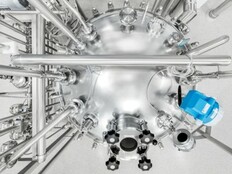- The project will run for two years.
- The Bavarian State Ministry co-funds the project with up to EUR 980,000.
- The focus is on developing antimicrobial peptides (AMPs) via microbial fermentation.
- The project aims to integrate new reactor technology for efficient solid-liquid reactions.

Project Overview
mk2 Biotechnologies, WACKER, and the Technical University of Munich (TUM) have launched a two-year project to develop, produce, and purify antimicrobial peptides (AMPs) on a large scale. The goal is to create sustainable alternatives to artificial preservatives for various applications.
Antimicrobial Peptides
AMPs are short amino acid chains with defensive properties against pathogens. They have potential applications in personal care, food and beverages, animal breeding, and crop protection. However, their industrial use has been limited due to high synthesis costs.
Production Platform
The consortium aims to develop a scalable, cost-efficient production platform using microbial fermentation and sustainable raw materials. This includes the development of new, potent AMPs and a planetary circulating solid-liquid reactor for large-scale bio-production.
Funding and Collaboration
The project is co-funded by the Bavarian State Ministry for Economic Affairs, Energy and Technology with up to EUR 980,000. The collaboration leverages the expertise of all partners, with mk2 Biotechnologies focusing on peptide synthesis, WACKER on biotechnological process development, and TUM on reactor technology.

